 W
WAcosmeryx anceus is a moth of the family Sphingidae. It was described by Caspar Stoll in 1781, and it is known from India, New Guinea, and Queensland, Australia.
 W
WAethes smeathmanniana, or Smeathmann's aethes moth, is a moth of the family Tortricidae. It was described by Johan Christian Fabricius in 1781. It is found in most of Europe, Asia Minor and in North America, where it has been recorded from New Jersey and Newfoundland and Labrador.
 W
WAgonopterix yeatiana is a moth of the family Depressariidae. It is found in most of Europe.
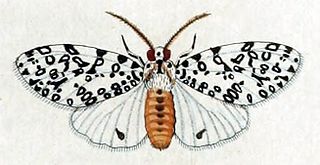 W
WAlpenus maculosus is a species of moth of the family Erebidae. It was described by Caspar Stoll in 1781. It is found along the Gold Coast and in Lagos, Sierra Leone, Guinea, Angola, Cameroon, Nigeria, the Republic of the Congo, Uganda, eastern Africa and Zimbabwe.
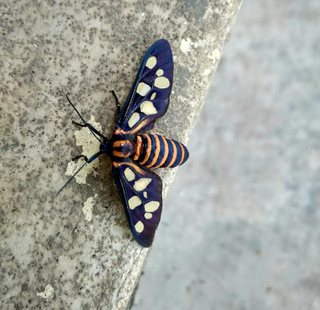 W
WAmata passalis, the sandalwood defoliator, is a moth of the family Erebidae first described by Johan Christian Fabricius in 1781. It is found in Sri Lanka and India. It is known mainly as a defoliator of sandalwood in India. It is also recorded on various alternate food plants.
 W
WAnticarsia irrorata, the owl moth, is a species of moth in the family Noctuidae. It is native to the Old World tropics.
Basiothia medea, the small verdant hawk, is a moth of the family Sphingidae. It is common in open habitats throughout the Ethiopian Region, including Madagascar. It is however probably absent from the equatorial forest belt, except as a vagrant. The species is an active migrant.
 W
WCalodesma amica is a moth of the family Erebidae. It was described by Stoll in 1781. It is found in Suriname and Ecuador.
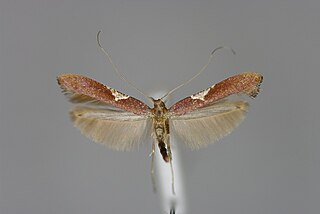 W
WCaloptilia stigmatella is a moth of the family Gracillariidae. It is known from the Holarctic Region, including all of Europe.
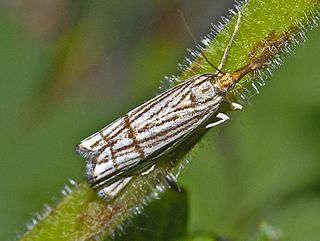 W
WChrysocrambus linetella is a species of moth in the family Crambidae.
 W
WThe cloaked pug is a moth of the family Geometridae. The species was first described by Johann August Ephraim Goeze in 1781 and it can be found in Europe and to the east in Siberia.
 W
WColostygia pectinataria, the green carpet, is a moth of the genus Colostygia in the family Geometridae. It was first described by August Wilhelm Knoch in 1781.
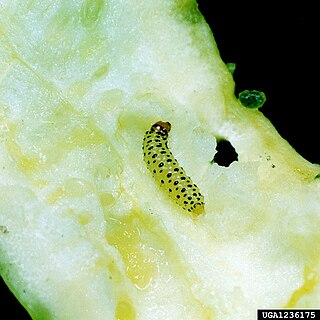 W
WDiaphania nitidalis, the pickleworm, is a serious agricultural pest insect in the family Crambidae. It damages squash primarily, but it is also a common pest of other cucurbits such as cucumbers and melons. It is a tropical species which can be found in the southern United States. In the southern United States, earlier plants are less affected compared to later plantings. It does not tolerate cold temperatures. The species was first described by Caspar Stoll in 1781.
 W
WThe juniper webber is a moth of the family Gelechiidae. It is found in Europe.
 W
WDysauxes punctata is a moth of the family Erebidae. It was described by Johan Christian Fabricius in 1781. It is found in France, Portugal, Spain, Switzerland, Austria, Italy, Croatia, Bosnia and Herzegovina, North Macedonia, Greece, Turkey, Romania, Ukraine, Russia and North Africa.
 W
WElachista gleichenella is a moth of the family Elachistidae found in most of Europe.
 W
WEloria diaphana is a moth of the subfamily Lymantriinae first described by Stoll in 1781. It is found in Suriname.
 W
WElymnias vitellia is a butterfly in the family Nymphalidae. It was described by Caspar Stoll in 1781. It is found in the Indomalayan realm.
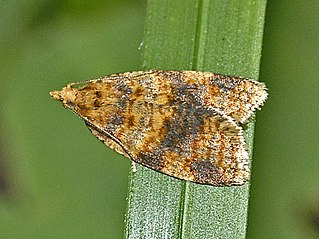 W
WEpagoge grotiana, common name brown-barred tortrix, is a moth of the family Tortricidae.
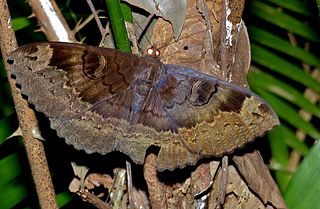 W
WErebus caprimulgus is a moth of the family Erebidae. It is found from the Oriental Region of India, Sri Lanka, Myanmar to Peninsular Malaysia, Sumatra and Borneo.
 W
WEudaemonia argus is a species of moth in the family Saturniidae. It is found in Africa, including Gabon, Nigeria, Ivory Coast, Togo, Guinea and Benin.
 W
WGlyphipterix bergstraesserella is a moth of the family Glyphipterigidae. It is found in most of Europe, except Ireland, Great Britain, the Netherlands, Portugal, most of the Balkan Peninsula and Ukraine.
 W
WGlyphipterix forsterella is a moth of the family Glyphipterigidae. It is found from most of Europe, east to Japan.
 W
WGorgopis libania is a moth of the family Hepialidae. It is found in South Africa and Angola. The larva feed on grasses.
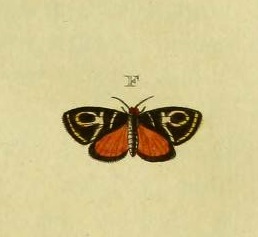 W
WHemerophila albertiana is a moth in the family Choreutidae. It was described by Pieter Cramer in 1781. It is found in Venezuela, Brazil, Peru and Guyana.
 W
WHoplodrina octogenaria, the uncertain, is a moth of the family Noctuidae. It is found in the Palearctic realm.
 W
WHypercompe cunigunda is a moth of the family Erebidae first described by Caspar Stoll in 1781. It is found in French Guiana, Suriname, Brazil, Venezuela, Ecuador and Bolivia.
 W
WHyperythra lutea is a moth in the family Geometridae. The species was first described by Caspar Stoll in 1781. It is found in Indian subregion, Sri Lanka, South East Asia, Sundaland.
 W
WHypocala andremona, the andremona moth, is a species of owlet moths, etc. in the family Erebidae. It is found in North America.
 W
WIdaea fuscovenosa, the dwarf cream wave, is a moth of the family Geometridae. It is found in the Palearctic,
 W
WLozotaenia forsterana is a moth of the family Tortricidae. It is found in Europe and parts of Asia.
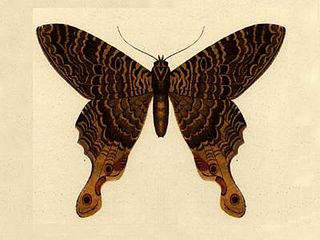 W
WMania aegisthus is a moth of the family Sematuridae. It is found in Jamaica, Haiti and Surinam.
 W
WNemapogon clematella, the barred white clothes moth, is a moth of the family Tineidae. It is found in most of Europe and in North America, where it has been recorded from Maryland and North Carolina. The habitat consists of woodlands.
 W
WNevrina procopia is a moth in the family Crambidae. It was described by Stoll in 1781. The type locality is unknown. It is found from Sri Lanka, India and Bhutan.
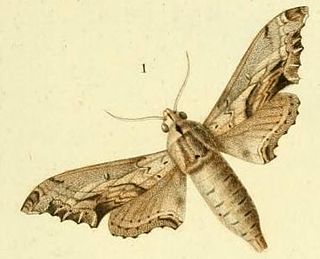 W
WOplerclanis rhadamistus is a moth of the family Sphingidae. It is known from lowland forest and heavy woodland from Senegal to Angola, the Congo and western Uganda.
 W
WOrthosia populeti, the lead-coloured drab, is a moth of the family Noctuidae. It is found in Europe.
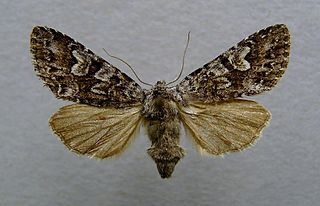 W
WPapestra biren, the glaucous shears, is a moth of the family Noctuidae. The species was first described by Johann August Ephraim Goeze in 1781. It is found in most of Europe, but not in the southern parts of the Iberian Peninsula, Italy and Greece. Outside of Europe it is found in Kashmir and through the Palearctic to Siberia, Central Asia, Amur, Kamchatka, the Russian Far East and Japan. It was introduced in Newfoundland in 1935 and has since then extended its range ever more southward within North America partly overlapping with Papestra quadrata (Smith, 1891). It rises to 2200 m above sea level in the Alps.
 W
WParathyris cedonulli is a moth of the family Erebidae first described by Caspar Stoll in 1781. It is found in French Guiana, Suriname, Brazil, Venezuela, Ecuador, Bolivia, Honduras and Belize.
 W
WPeridea anceps, the great prominent, is a moth of the family Notodontidae first described by Johann August Ephraim Goeze in 1781. It is found in central and southern Europe and North Africa.
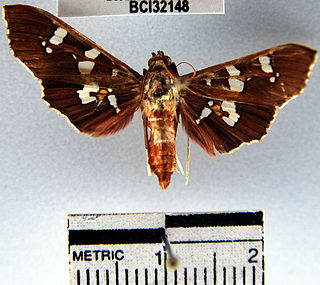 W
WPhostria temira is a moth in the family Crambidae. It was described by Caspar Stoll in 1781. It is found in Surinam, Costa Rica, Panama and Mexico.
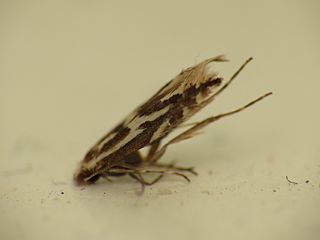 W
WThe spotted tentiform leafminer is a moth of the family Gracillariidae. It is known from all of Europe, east to Ukraine and central Anatolia. It is also known throughout North America including Nova Scotia, Quebec, Ontario, Wisconsin and California.
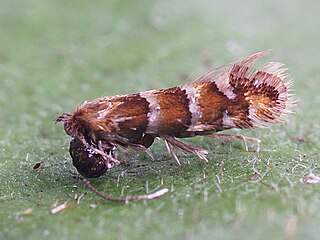 W
WPhyllonorycter klemannella is a moth of the family Gracillariidae. It is known from all of Europe, except Greece.
Phyllonorycter schreberella is a moth of the family Gracillariidae. It is known from Europe, except northern Europe, Ireland and the Balkan Peninsula.
 W
WPolytela gloriosae, the Indian lily moth or lily caterpillar, is a moth of the family Noctuidae. The species was first described by Johan Christian Fabricius in 1781. It is found in Sri Lanka, India and probably in Indonesia.
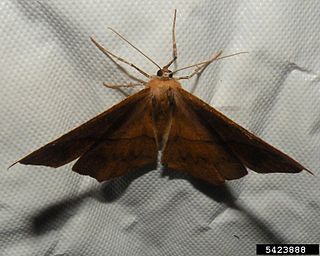 W
WProchoerodes lineola, the large maple spanworm, is a moth of the family Geometridae. It is found from Nova Scotia to Florida, west to Texas and north to Alberta.
 W
WRubropsichia fuesliniana is a species of moth of the family Tortricidae. It is found in Brazil and Surinam.
 W
WRupela albina is a moth of the family Crambidae. It is found in Mexico, Honduras, Guatemala, Nicaragua, Costa Rica, the Guianas, Brazil, Colombia, Ecuador and Peru.
 W
WScopula marginepunctata, the mullein wave, is a moth of the family Geometridae. It was described by Johann August Ephraim Goeze in 1781. It is found throughout Europe.
 W
WSideridis reticulata, commonly known as the bordered Gothic, is a moth of the family Noctuidae. It is found in the Palearctic realm, from the Iberian Peninsula throughout Europe and the temperate regions of Central Asia and the Russian Far East. In the north it occurs in Fennoscandia south of the Arctic Circle. In the south it ranges to the Mediterranean. It rises to over 2000 metres above sea level in the Alps.
 W
WSimyra albovenosa, the reed dagger, is a moth of the family Noctuidae. It is found in most of Europe, then Turkey, Iran, Transcaucasus and into the east Palearctic.
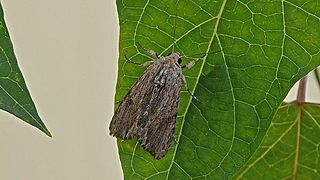 W
WSpodoptera eridania is a moth that is known to be a pest. They are one of the most important defoliators in the tropical and subtropical regions of the western hemisphere that feed heavily on plants while they are young, often resulting in skeleton leaves on their food plants. They are also heavy feeders on tomato in Florida. There is a lot of development in producing pesticides against the S. eridania, specifically a neem-based pesticide that can result in smaller and prolonged development. The wingspan is 33–38 mm. Adults are on wing year-round. The larvae feed on various weeds but prefer Amaranthus species and Phytolacca americana.
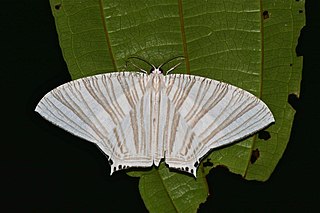 W
WStrophidia caudata is a moth of the family Uraniidae first described by Johan Christian Fabricius in 1781. It is found in the Indian subregion, Sri Lanka, to Peninsular Malaysia, Borneo and Sulawesi.
 W
WSyngamia florella, the orange-spotted flower moth or red waisted florella moth, is a moth of the family Crambidae. It was described by Caspar Stoll in 1781. It is found from South Carolina to Florida and from Arkansas to Texas, south to the West Indies and through Mexico to Argentina. It is also found on Bermuda.
 W
WThyrgis militta is a moth of the subfamily Arctiinae. It was described by Caspar Stoll in 1781. It is found in Bolivia, Suriname, Venezuela and Peru.